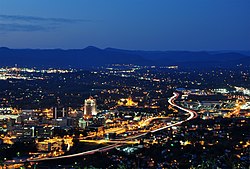**Appalachia**
Appalachia, a term that evokes images of rolling hills and rich cultural heritage, refers to a vast region in the Eastern United States, extending from the Southern Tier of New York to the northern reaches of Alabama and Georgia. The name “Appalachia” traces its roots back to the Apalachee, an indigenous tribe that once thrived in the area now known as the Florida Panhandle. Spanish explorers in the 16th century adopted the term to describe the mountainous terrain they encountered, and it has since become emblematic of the region’s distinct identity.
In recent years, Appalachia has been making waves in the cannabis industry, thanks to its favorable growing conditions and commitment to sustainable agriculture. The region’s varied climate and fertile soil create an ideal environment for cultivating cannabis strains that are both robust and aromatic. As the cannabis sector continues to grow, Appalachia is carving out a niche as a premier destination for high-quality cannabis production. Local farmers and entrepreneurs are leveraging the region’s agricultural legacy to produce exceptional cannabis products, breathing new life into the local economy and redefining Appalachia’s role in the industry.
For those with a keen interest in cannabis and its cultural implications, Appalachia offers a unique perspective on how tradition and innovation can harmoniously blend. As the cannabis market evolves, the region’s distinctive terroir and
Appalachia (locally /ˌæpəˈlætʃə/ ⓘ AP-ə-LATCH-ə) is a geographic region located in the Appalachian Mountains in the east of North America. In the north, its boundaries stretch from Mount Carleton Provincial Park in New Brunswick, Canada, continuing south through the Blue Ridge Mountains and Great Smoky Mountains into northern Georgia, Alabama, and Mississippi, with West Virginia near the center, being the only state entirely within the boundaries of Appalachia. In 2021, the region was home to an estimated 26.3 million people.
Appalachia | |
|---|---|
Region | |
Left–right from top:
| |
Elevation map of the Apalachian mountains Lighter red counties form the Appalachian Regional Commission; dark red counties make up roughly the United States inner Appalachia. | |
| Coordinates: 38°48′N 81°00′W / 38.80°N 81.00°W | |
| Country | United States of America and Canada |
| Counties or county-equivalents | 420 |
| States | 13 |
| Largest city | Pittsburgh |
| Area | |
• Total | 206,000 sq mi (530,000 km2) |
| Population (2021) | |
• Total | 26.3 million (Appalachian Regional Commission estimate) |
| • Density | 127.7/sq mi (49.3/km2) |
| Demonym | Appalachian |
| Language | |
| • American English | Southern American English (Appalachian English), Western Pennsylvania English, African-American English – and varieties that fall under that umbrella – are spoken by African Americans across the entire United States of America, including Appalachia. |
| • Native languages (Indigenous languages of the Americas) | This section requires further information. |
Since its recognition as a cultural region in the late 19th century, Appalachia has been a source of enduring myths and distortions regarding the isolation, temperament, and behavior of its inhabitants. Early 20th-century writers often engaged in yellow journalism focused on sensationalistic aspects of the region's culture, such as moonshining and clan feuding, portraying the region's inhabitants as uneducated and unrefined; although these stereotypes still exist to a lesser extent today, sociological studies have since begun to dispel them.
Appalachia is endowed with abundant natural resources, but its residents have struggled economically and have long been associated with poverty. In the early 20th century, large-scale logging and coal mining firms brought jobs and modern amenities to Appalachia, but by the 1960s the region had failed to capitalize on any long-term benefits from these two industries. Beginning in the 1930s, the federal government sought to alleviate poverty in the Appalachian region with a series of New Deal initiatives, specifically the Tennessee Valley Authority (TVA). The TVA was responsible for the construction of hydroelectric dams that provide a vast amount of electricity and that support programs for better farming practices, regional planning, and economic development.
In 1965, the Appalachian Regional Commission was created to further alleviate poverty in the region, mainly by diversifying the region's economy and helping to provide better health care and educational opportunities to the region's inhabitants. By 1990, Appalachia had largely joined the economic mainstream but still lagged behind the rest of the nation in most economic indicators.













